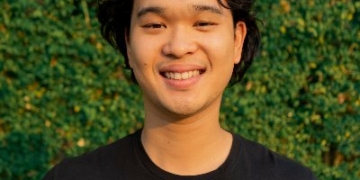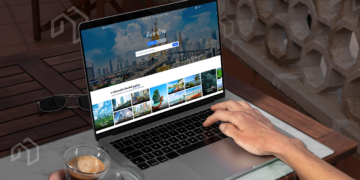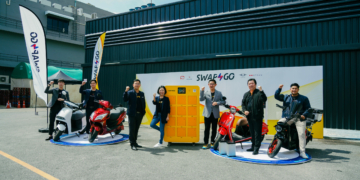Recycled goods, sustainability, sustainable products, environmentally friendly. Think about all these terms being thrown around across multiple media outlets, influencers and brands themselves. We know it’s relevant now to talk the talk, but if we were to dig deeper, who’s actually committing to the cause? Hint, it’s time consuming and very expensive.
We sat down with Annabelle Georgina Hutter, the founder and solopreneur of Born on Saturday brand, a lifestyle brand that sells 100% recyclable cotton tote bags and soon to launch apparel -to learn more about what it truly means to be committed to a cause, and how she’s also weaving that into the family business at Säntis Textiles.
“When I joined my father’s business at Säntis Textiles as the Global Product Director, I quickly realized that a complete corporate career wasn’t for me, I missed that creativity and exploration in my daily life,” says Annabelle.
That’s how Born on Saturday was launched, in March 2020 in the middle of the pandemic.
The Background
Annabelle’s father runs the family owned Säntis Textiles, a Swiss company based in Singapore, with factories across the globe, from China to Turkey and Pakistan. The company works with global brands such as Patagonia, H&M and Lacoste, and specializes in fabric sourcing and production for material, fibre and yarns.
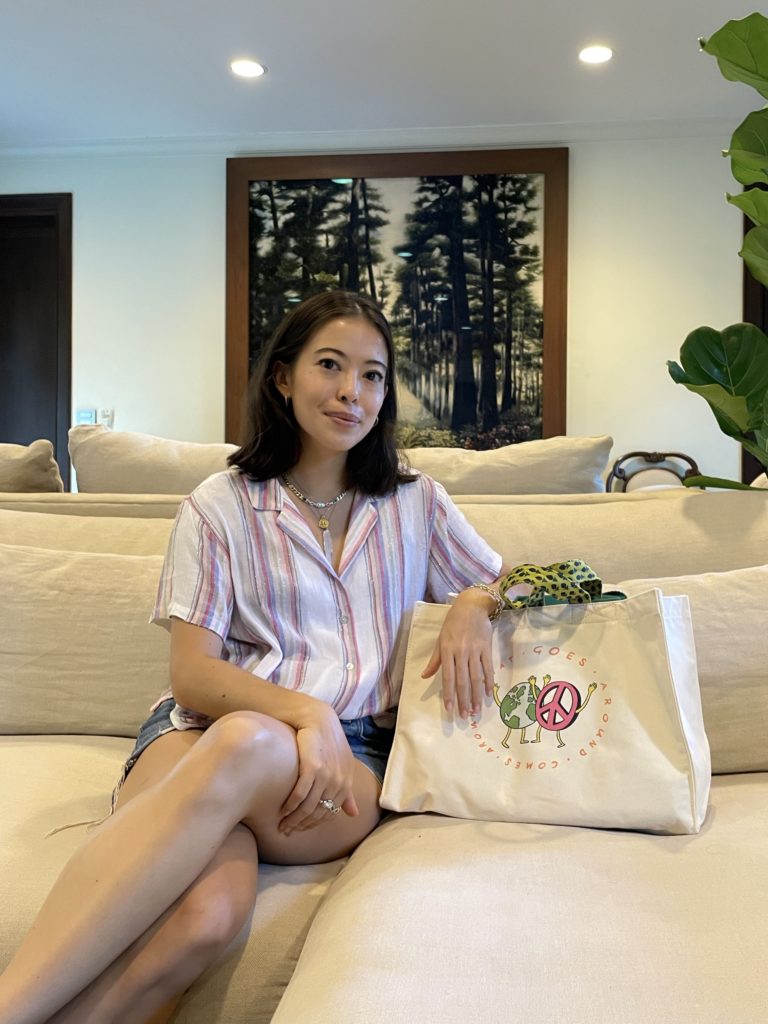
The company itself specializes in developing yarns and fabrics according to customers’ requirements, as well as 100% recycled cotton. Needless to say, through her day job as the Global Product Director at Säntis, she understands exactly what needs to go into building a brand like Born on Saturday. It isn’t a fun hobby or a creative project, but a valid extension of what the family business is about, with the same core values.
“I also want to be able to develop and create my own products. At Säntis, we create fabrics for other brands, and I realized that creating our own products is also something I would like to push for in the future,” says Annabelle.
Her work at Säntis also allows collaboration and more personable face time with clients, who may not have necessarily had a lot of exposure to the younger generation in meetings.
“I feel that through my work at Säntis, I am able to explain the value propositions of being more environmentally conscious and advocate for a more circular mindset, from recycling waste into new fabrics and more.”
The Product
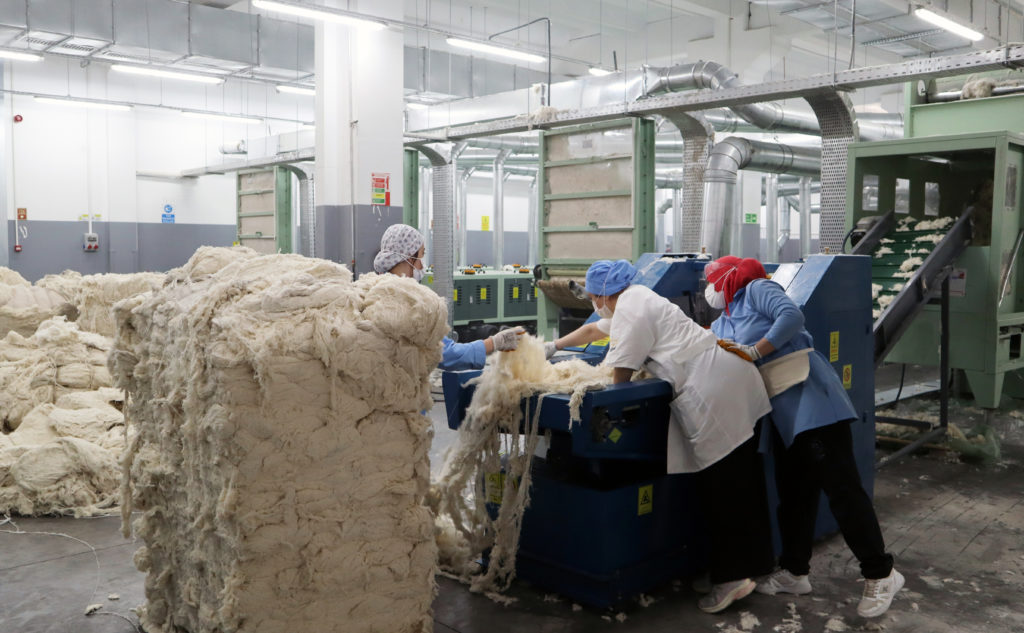
The brand currently sells tote bags made from 100% recycled cotton, which means it’s made from textile waste. The bags are made only from industrial waste and leftover cuttings from fabric production and taken from the family business’ deadstocks. Then, it gets shipped to Thailand in the most carbon neutral way possible (of course) and Annabelle then works with a family owned business in Bangkok’s Chinatown neighborhood, known for its creatives-to bring the bag to life.
“I am able to oversee the entire supply chain, and this is one of the things I love most about the business; it’s personable and I see exactly how each piece comes to life,” she says.
Currently, Born on Saturday sells directly on instagram, as well as on fast fashion platform Pomelo and Siwilai (online shopping available).
We ask about the elephant in the room; a 100% recyclable brand selling on a fast fashion platform like Pomelo with assumed fashion waste?
“I thought long and hard about this,” says Annabelle, “I was very conscious of whether it would hurt my brand positioning to sell on Pomelo. But ultimately, I decided it was important to drive the conversation there and have the visibility and potential to influence.”
The move has paid off, there’s no better way to start the conversation then to put yourself right in the middle of a challenge.
“Pomelo employees have started to buy my bags, and I’ve had great conversations with the team about how to incorporate more sustainability into the platform, and they have actually tweaked the delivery parcels for my products to be more eco friendly,” says Annabelle.
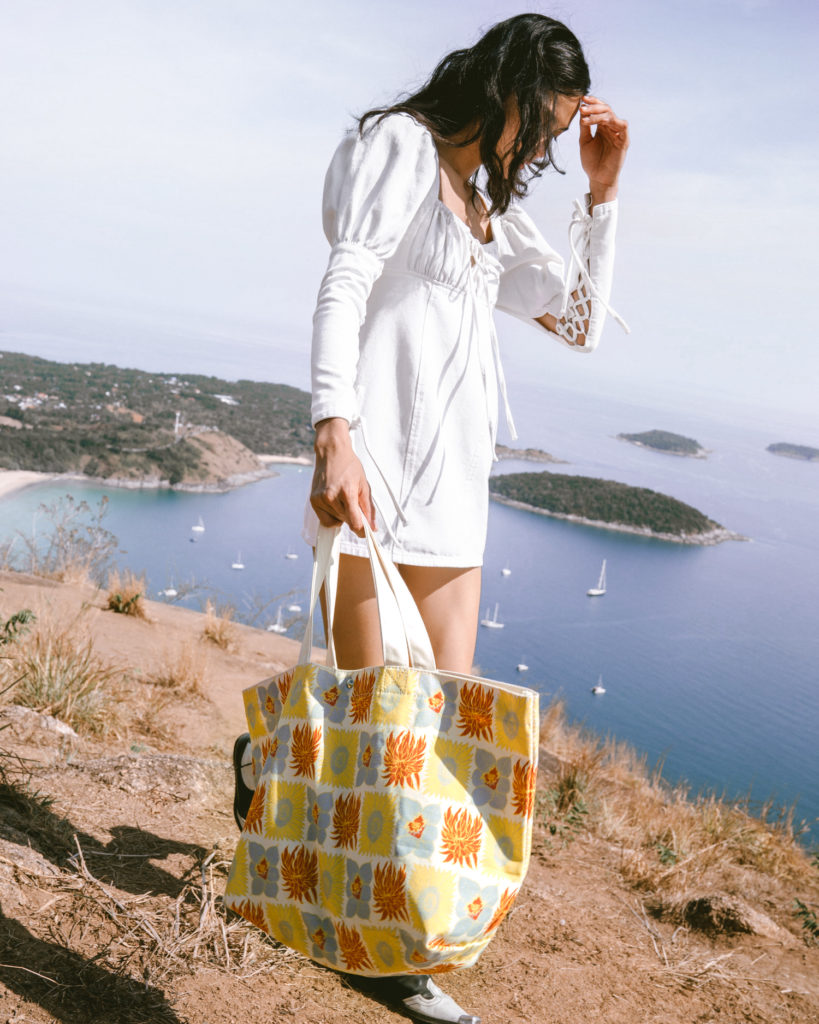
Key takeaway? Meaningful changes take time and exposure is important, particularly when advocating for a big cause.
Practicing What You Preach
An important fact about recycled products is that there’s a distinct difference between 100% recyclable cotton and the majority of brands that claim to sell recyclable goods.
“Most brands use 20% of recycled materials and 80% of conventional cotton,” says Annabelle. Sometimes, that’s also due to the comfort factor.
“Obviously, a bag made out of 100% recycled materials is not going to be soft in texture like a typical tote. It feels a bit coarser and rigid, but it works really well in terms of function,” says Annabelle. “I am also launching t-shirts soon, and the texture feels very soft. It’s more like a vintage touch.”
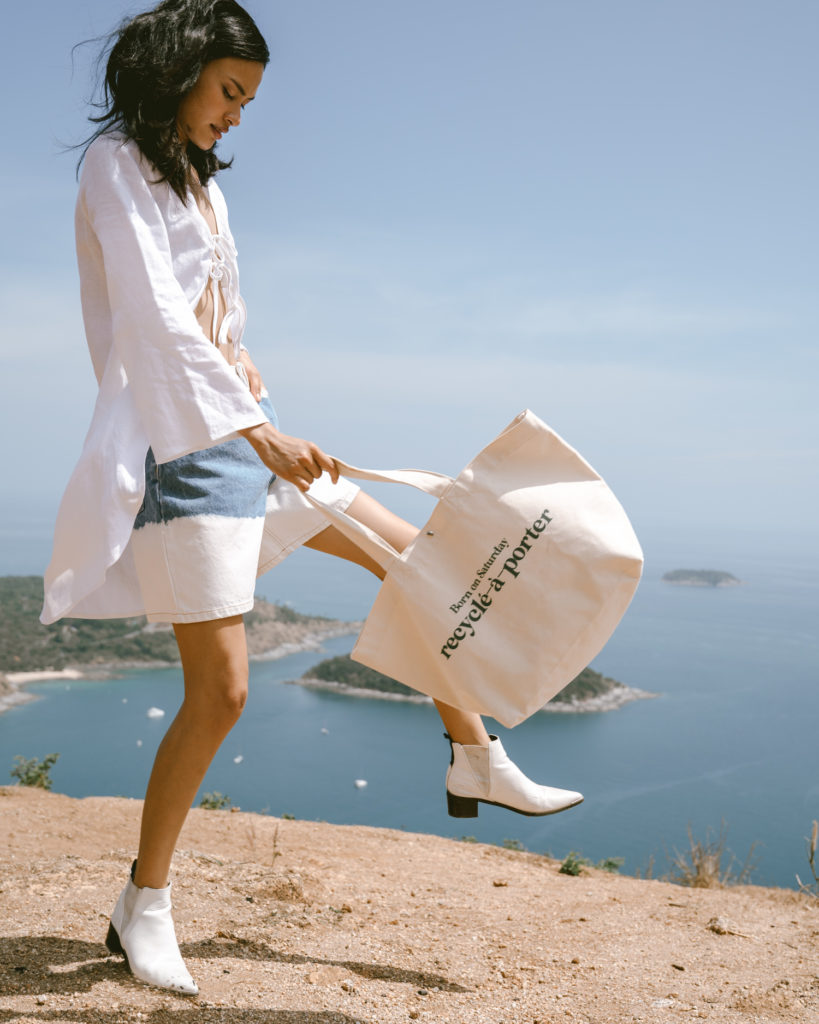
“When I’m consulting a brand,I always say that the story comes first. You cannot just hand over recycled clothing to someone and say, wear it. There needs to be marketing, and storytelling,” she says. “For example, when Tommy Hilfiger launched a collection with Lewis Hamilton, Lewis actually picked out the recycled cotton shirt, which gained interest from consumers.”
It’s the simple matter of marketing your product in the right way and positioning it to your audience.
Beyond that, Annabelle also talks about the importance of achieving a circular economy. Wait, what is that?
“A circular economy essentially means to use materials and resources as long as possible, through achieving zero waste and zero emissions,” says Annabelle. “There are many details that go into the process, but this is essentially its purpose.”
Achieving these things at scale takes time, resources and wide infrastructure support. To a brand like Born on Saturday though, it’s important to just start with what you can, and create the conversations.
“Our generation is passionate about driving these changes, and being vocal about social issues. I think it may be because we have access to resources at our fingertips, and many platforms to engage with,” says Annabelle. “ I truly am passionate about driving the necessary changes towards sustainability, beyond the buzzword.”
“Climate anxiety is real, and our generation absorbs all this information from all corners of the internet, so the need for change lingers in our heads,” she says.
This is important. These terms have become very catchy buzzwords, but when you look at global brands such as Lego and its long road to producing recyclable bricks; it takes years of research and development, and it’s a very expensive experiment. But, it’s one that’s being demanded by the future generation.
Brands have to listen.
The Thai Challenge
“It’s definitely a luxury to be able to worry and care about the environment,” says Annabelle. “But to me, there’s no better time to advocate for it.”
Climate Elitism in itself, is a toxic thing. Annabelle talks about the availability of EV cars here in Thailand, and how the price point is significantly more expensive than an average diesel car. In developing countries such as here, making the informed sustainable choice, similarly to being a vegan, is equated to having disposable income simply because things are not readily available on a mass scale.
It’s starting with food though, even 7-Eleven is now selling plant based krapao as a ready to go lunch option.
Branding and marketing certainly helps to attract more attention and raise awareness for an issue such as climate change and reducing carbon emissions. However, it’s difficult when public policies don’t quite reflect the change we’d like to see.
In Thailand, we’re still dealing with decades of smokey public buses, a poor recycling system and a lack of public sector support in terms of environmental policies.
“It’s a certain class that is dictating how Thailand will approach climate change and it’s the ministries that keep delaying things like turning our buses electric. The worrying thing is that the people who will be most left behind, are also those who will be most affected,” says Annabelle.
“I really hope that in the future, more companies in Thailand do take this issue seriously, and not just do it because they think it’s trendy. There’s so much local production that could be opened up and talked about, I wish that more companies here feel more inclined to talk about their efforts.”
Looking Ahead: The Post Pandemic Future
When asked about how people can educate themselves and learn more about tackling environmental issues, Annabelle’s advice is to simply read more and do your research.
“There’s so much content available, and it’s best to read all points of views,” she says. “For local resources, I recommend Root the Future and Fashion Revolution. These people are not just talking the talk, but putting in the work for their causes.
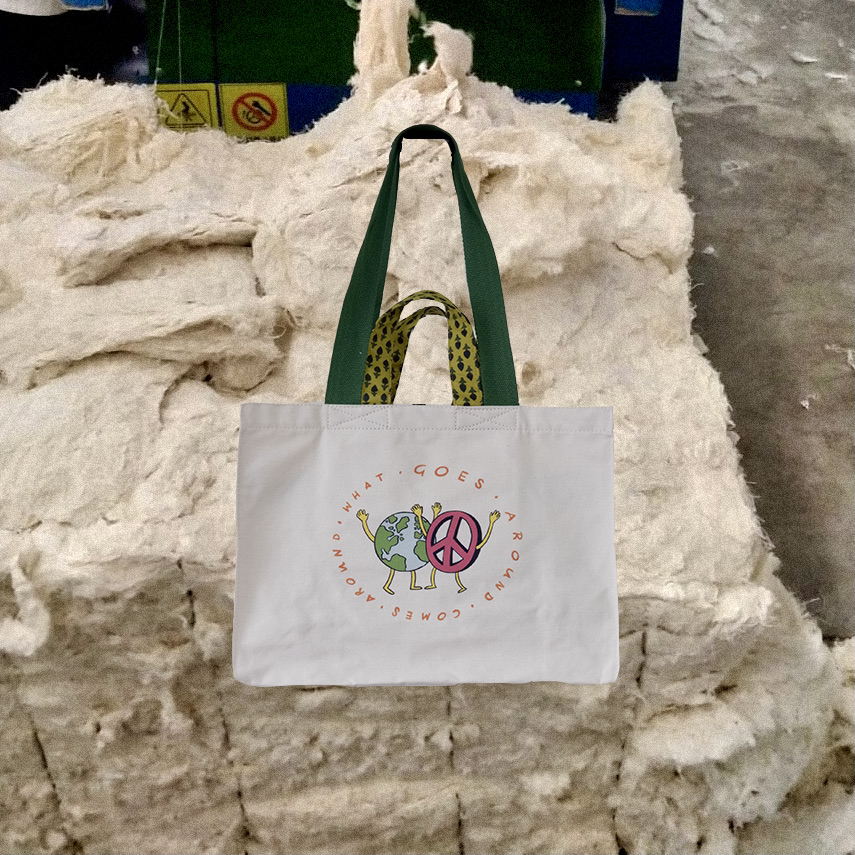
After the pandemic improves, Annabelle would like to see more people go out and experience the world and learn about different ways in which they can contribute to a more sustainable planet.
“We’ve been locked in for so long, it’ll be really great once things reopen globally and people can travel to search for new ideas.”
As for Born on Saturday? It’s a mission to go global and put Thailand on the map.
“There’s so much creativity in Thailand’s small businesses, I’d really like to see Thailand gain more exposure in that space. I’d like to tell that story through my products and potentially through collaborations with global brands,” says Annabelle.
Born on Saturday’s apparel collection, which includes t-shirts and crew neck sweatshirts will launch within this year.


